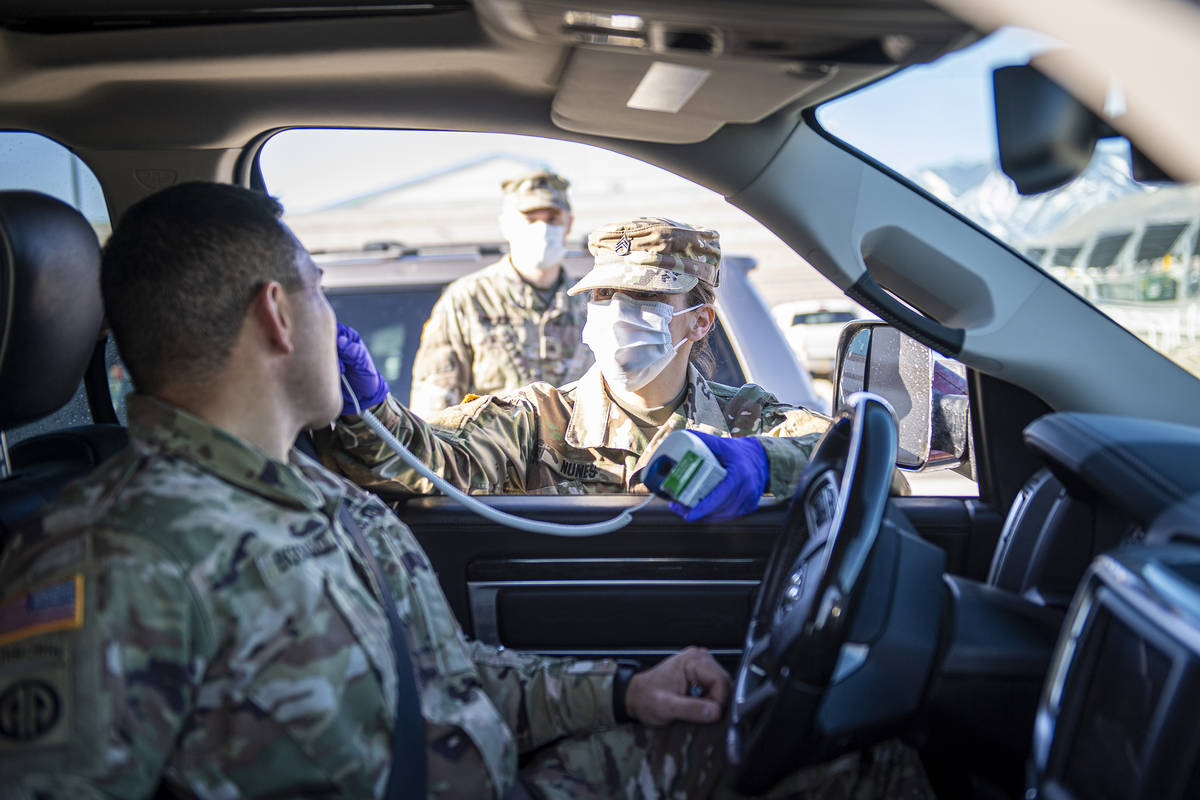Lawmakers urge help for rural hospitals
WASHINGTON — Nevada has received personal protective equipment for health care workers, but lawmakers from both major political parties on Thursday urged the administration to use resources from the $2.2 trillion relief package to help rural hospitals and clinics quickly.
Nevada has received masks, gowns, face shields and other equipment over the past few days from the Department of Health and Human Services and the Federal Emergency Management Agency, said Rep. Mark Amodei, R-Nev.
More supplies will continue to arrive in state over the next few days, he said.
“While we can never say mission accomplished, these additional PPE supplies will help alleviate some of the front-line challenges our doctors, nurses, and health care professionals have been facing here in Nevada,” Amodei said.
But the state’s two senators, Catherine Cortez Masto and Jacky Rosen, both Democrats, joined a bipartisan, bicameral letter to Health and Human Services Secretary Alex Azar urging the administration to use funds made available to help rural hospitals and clinics.
Many rural hospitals and clinics across the country are facing financial shortfalls as elective surgeries and other revenue-generating procedures are put off to prepare for the coronavirus outbreak, buying hard to find supplies and equipment.
“Our rural providers need your immediate assistance,” lawmakers wrote in a letter to Azar. “Congress has provided you with the funding and flexibility. Now it is up to the administration to respond with rapid action to sustain rural providers.”
Lawmakers from Colorado, Wyoming, Washington state and Tennessee, as well as the Nevada senators, signed onto the letter seeking swift financial help.
“We are hearing from rural hospitals from across the country that have only days left of cash on hand — money needed for payroll and supplies,” the letter said.
A spokesman for Cortez Masto said the senator has been in contact with the National Rural Hospital Association and the Nevada Hospital Association in recent days.
The Nevada Hospital Association has reported that some hospitals have rescheduled elective surgeries and are preparing for an influx of patients for screening for COVID-19.
In addition, the Nevada Hospital Association has a mutual aid agreement to share supplies that become scarce or limited, according to its website.
Amodei said the state has in recent days received from HHS and FEMA:
• 29,600 gowns
• 184,200 gloves
• 1,750 coveralls
• 60,450 N95 masks
• 143,500 surgical masks
• 31,200 face shields
Those supplies will be distributed to hospitals, clinics and providers under the guidance of Gov. Steve Sisolak, according to Amodei.
The congressman also said coronavirus tests are expected to be delivered to the state within a week and would also be distributed throughout Nevada under guidance of the governor.
Meanwhile, 90 percent of cities that included Las Vegas, Henderson and Reno have reported the need for funds and supplies to provide first responders and health care workers personal protective equipment.
Reno Fire Chief David Cochran said fire and police, as well as hospital and health care workers, are in dire need of masks, gowns and glasses “needed to safely perform their jobs.”
The U.S. Conference of Mayors conducted a survey to document the magnitude of need that cities face in obtaining equipment.
“The survey shows that, despite their best efforts, most cities do not have and cannot obtain adequate equipment and supplies needed to protect their residents,” said Bryan Barnett, mayor of Rochester Hills, Mich., president of the mayors conference.
Although the $2.2 trillion package included $150 billion for cities and states to fight the pandemic, it was far less that the $250 billion the mayors had requested from lawmakers and the White House.
Contact Gary Martin at gmartin@reviewjournal.com or 202-662-7390. Follow @garymartindc on Twitter.











































